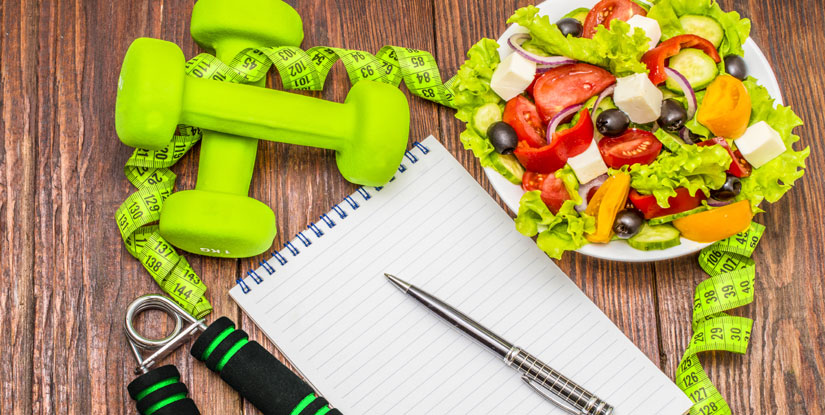It’s common knowledge that fats are essential for bodybuilders in assisting growth and development of muscles. In addition, fats help in mineral absorption while acting as a source of energy at the same time. However, not all fats are healthy.
Monounsaturated and polyunsaturated fats are healthy and can be readily obtained from nuts, olive oil, oily fish, seeds and avocado. Although an adequate intake of healthy fats is essential in bodybuilding, timing your fat consumption is even more important.
Breakfast
According to Coach Charles Poliquin, from the Poliquin Performance Center, eating healthy fats during breakfast helps to stabilize your blood sugar levels. He recommends consumption of nuts as a source of fat in the morning.
Fats are calorie-dense macronutrients, containing up to nine calories per gram, in comparison to four calories per gram from proteins and carbohydrates. Since you are not eating for several hours when sleeping, a high calorie breakfast will give adequate energy for the day and for your workouts.
You can also try adding some fat in your breakfast as a convenient and easy way to get those extra calories your body requires.
Before and After Training
Before you start exercising, your primary goal should be to get minerals and other nutrients into your bloodstream as fast as possible, according to Dr. John Berardi, the author of the book “The Essentials of Sport and Exercise Nutrition.” Since fat can slow digestion, you should avoid healthy fats in your pre- and post-workout diets.
Other nutritionists contend that this only happens for athletes who exercise several times in a day, and consumption of fat around workouts cannot be problematic although it is not necessary. To create a balance, avoid adding extra fats to your pre- and post-workout meals, but don’t worry if you consume a fattier protein source such as salmon.

Before Bedtime
In comparison to carbohydrates, fats digest slowly and can hold up absorption of proteins and other nutrients. It is thus recommended to consume pre-bed meals containing healthy fats to preserve your muscle mass when you are asleep, according to Dr. Berardi. Consider adding a tablespoon of peanut butter, olive oil or walnut oil to your pre-bed meal or a handful of almonds.
Displacing Carbohydrates with Fat
The percentage of macronutrients is all that matters in your diet. Consumption of one macronutrient means a reduction of other macronutrients. Regardless of your bodybuilding goal, you should first meet all your protein needs before adjusting your fat and carbohydrate intake.
If you consume more fat, you should eat less carbohydrates, and vice versa. Displacing your carbohydrates by taking fat creates the right environment for fat loss. By reducing carbohydrates, there is a decrease in insulin levels in your blood, which allows your body to easily access fat stores for energy while at the same time allowing more fat to enter and fuel your muscles.
Fat Consumption Boosts Fat Burning
From a biochemical perspective, low-fat diets condition your body to effectively burn fat. They increase enzymatic reactions in your system enabling your body to effectively burn carbohydrates.
In addition, eating more fat triggers an increased production of adipokines, a hormone that enhances fat breakdown and increases metabolism. This helps to curb your appetite and yields to satiating effects. When you are more satiated, you are less likely to go for unhealthy snacks or go for larger portions during mealtime.
Special Considerations
Despite the fact that healthy fats come with a host of benefits for bodybuilders, it is always advisable to watch your overall intake. According to the American Heart Association, fats should only constitute 25-35% of your total daily caloric intake.
Over consumption of fat can lead to an increased caloric intake resulting in weight gain. Meals that are low in fat content make it easy to control your energy intake.

Fat Mistake to Avoid
Although fat is good for your health, overconsumption may lead to weight gain within a short duration. Even if you are a bodybuilder and are counting your calorie and macronutrients intake, you should always have some level of measurement control for fats and oils in your diet.
Fats are delicious and tempting to over-consume. This means that even if you are making an effort to consume more fat, ensure that all your efforts are well calculated.
Conclusion
Bodybuilders don’t necessarily have to consume more fat. Although fat helps in the absorption of minerals and other nutrients, its consumption should be carefully regulated because it is calorie-dense and overconsumption can lead to weight gain.
If you are a bodybuilder on a regular training program, it is advisable to minimize your fat intake in your pre- and post-workout meals. This is because fat slows digestion and may delay absorption of other nutrients essential in supporting normal cellular functions during and after training. With proper timing, an adequate fat intake in a regular meal can help prevent unhealthy snacking in between mealtimes.


